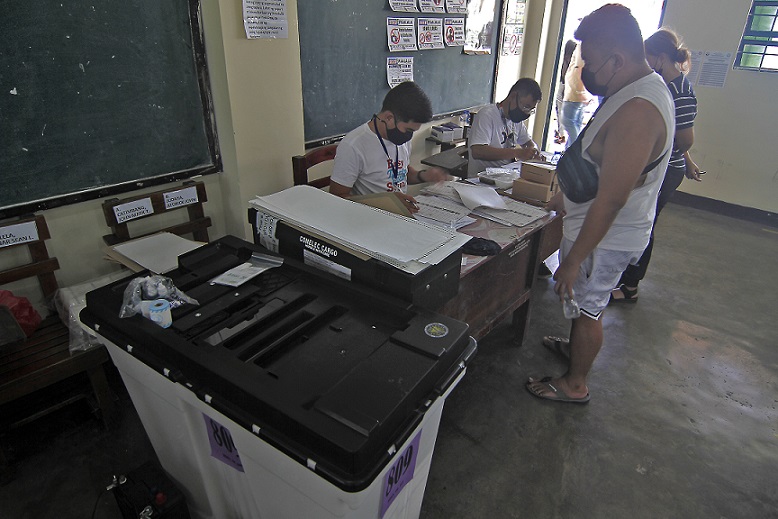That is a dangerous question to ask. Given the tyranny of trolls, second-guessing the results of the May 9 elections is like acquiescing to the venom of bashing and hate-language attacks.
The sensitivity is built-in given the disinformation-driven divisiveness of the campaign. Anyone questioning the results would be immediately misconstrued as partisan for the losing candidate.
Perhaps it is because of these delicate grounds that none from the camp of Vice President Leni Robredo has made any stated position on the election results.
Information technology experts and observers, however, began asking precisely about the possibility of cheating by automation as early as the evening of May 9 when transmission of the vote counts came pouring in as fast as lightning.
If dumbfounded silence from the rest of the Filipino populace was palpable after May 9, random thoughts were read across social media from many IT observers. IT experts, unlike most of us laypersons, know the science of data technology so they can sense movements of possible abnormalities that we do not see.
The small group Truth and Transparency (TNT) – they are only a trio actually – banded together not even because of common partisan interests. As IT experts their concern is how election automation could be open to fraud and worse, severely disenfranchise the sovereign will of the people to choose their national destiny. In fact, they are asking if there was automated cheating not primarily to change the outcome of the last election but ultimately to safeguard the next one in 2025.
It will probably shock many that one of these three IT experts is Eliseo Rio, Rodrigo Duterte’s cabinet secretary for the Department of Information and Communications Technology in an officer-in-charge capacity. Why is a former Duterte government official daring to question the integrity of the election?
Then there is former Comelec commissioner Gus Lagman, the only veteran IT expert to have ever been appointed to that agency. His business profile includes his work in the development of AI software. Today, he is the national chairperson of the election watchdog National Citizens’ Movement for Free Elections or Namfrel.
Completing the trio is Franklin Ysaac, former president of the Financial Executives Institute of the Philippines or FINEX who had been in the business of banking consultancy, including the provision of computer software applications to the country’s rural banks, commercial banks and investment houses. He was once a consultant of the Asian Development Bank and a faculty member of De La Salle University.
Ysaac is open about his political leaning in the last elections. A native of Naga City, he voted for Vice President Leni Robredo but was never involved in the Robredo People’s Council or in any of her Angat Buhay projects. Neither was he active in Robredo’s presidential campaign.
Rio, on the other hand, supported Ping Lacson’s candidacy.
What exactly does TNT want?
First and foremost, it is looking into the possibility that the May 9 election was rigged. Rio questions the consistent 68% ratio of Ferdinand Marcos Jr.’s votes as these were coming from various precincts all over the country. That the vote count had reached 80% only two hours after the polls had closed, TNT contends that this could have been because the electronic process was pre-programmed.
To find out, TNT has begun a signature campaign asking the Comelec to open all ballot boxes for a manual recount and allow independent IT professionals to conduct an audit of the SD cards used in the vote counting machines. The SD cards are like the SIM cards in our mobile phones. They contain all the fingerprints of all interventions used, possible hacking included, on the electronic counting system.
Partisans have, in fact, begun to troll TNT. “Move on, accept defeat, sour grapes,” they demand.
But TNT is undeterred. The will of the electorate is a foundation of democracy often subverted by powerful politicians who do not give a damn about disenfranchising the rights of the electorate for as long as they remain in command. We saw that very clearly in the “Hello Garci” scandal where the country’s sitting president herself was the cheater.
We are done with calling Comelec commissioners on their mobile phones. Hackers and SD card peddlers can change the numbers in the canvassing of votes and make it appear that no fraud happened.
The crusade for Truth and Transparency is worth our democracy.
The views in this column are those of the author and do not necessarily reflect the views of VERA Files.
